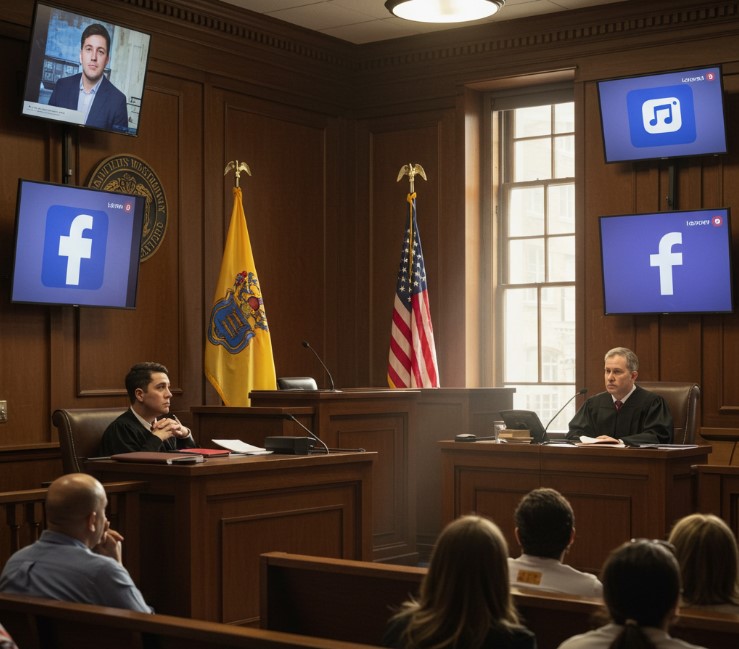The New Jersey Planner, July/August 2010
It is important for you, as board members, to remember that emotions run high for and against all controversial actions. Sometimes, when a developer or objector disagrees with your ruling, they might try suing individual board members, and not just the board. It must be borne in mind with very limited exceptions, as a board member, whether planning or zoning, you cannot be sued because you have immunity. Therefore, the first action that must occur, when someone sues the board and its members, is for the board’s attorney to file a summary judgment motion seeking to dismiss all individual board members. It may even be wise to have your board attorney send a letter to your adversary, suggesting that they dismiss all board members from the suit; and stating that if they refuse, you intend to pursue remedies for the filing of a frivolous action.
The doctrine of legislative and judicial immunity predates the United States. The King of England was protected from suit under the doctrine of sovereign immunity. As the venerable Judge Humphreys stated in the case of Guarini v. State of N.Y., 215 N.J.Super. 426, (Ch. 1986): “The immunity of the sovereign from suit springs from the inability at common law to sue the king in his own court without his consent. The king was at the zenith of the feudal hierarchy. He was not subject to suit elsewhere since there was no court higher than his own. See F. Pollock & F. Maitland, History of English Law (2 ed. 1899), 518.” In effect, this was the concept that “A king can do no wrong.”
Since the Treaty of Versailles, the people and our government have all the rights of the King. Some may disagree and give you a sophisticated argument about the Eleventh Amendment. However, the argument has been settled since the enactment of the Tort Claims Act; N.J.S.A. 59:1-1 et seq. makes it clear as to when and under what circumstances the government and/or its agents may be sued. The Tort Claims Act establishes those circumstances under which a citizen may sue our government. The legislature wisely chose to preserve immunity for the government and subordinate government agencies of the State, including the Courts, the Legislature and by derivation, land use boards.
The planning board acts as a legislative body, when it acts on the master plan, and as a judicial body, when it grants variances. The zoning board is a quasi-judicial body in all of its actions. Both the legislative and the judicial actions or in-actions of our public bodies are exempt from liability under N.J.S.A. 59:2-3(b).
In Anastasio v. Planning Bd. of Tp. of West Orange, 209 N.J. Super. 499, 524 (App. Div.), certif. den. 107 N.J. 46 (1986), the Appellate Division found that board members, because of their quasi judicial nature, are entitled to absolute immunity under Federal Law for board members engaged in the quasi-judicial action of site plan approval.
The logic behind providing “absolute immunity” to land use board members was explained by another well respected jurist, Judge Haines, in Centennial Land & Dev. Co. v. Township of Medford, 165N.J.Super. 220, 397 A.2d 1136 (Law Div.1979) . He opined that there were two reasons for conferring absolute immunity on board members: ” (1) the injustice, particularly in the absence of bad faith of subjecting to liability an officer, who is required, by the legal obligation of his position to exercise discretion, [and] (2) the danger that the threat of such liability would deter his willingness to execute his office with the decisiveness and the judgment required by the public good.” Id. at 228. It should be obvious to you, as unpaid volunteers, that the burden on your goodwill to serve our communities would quickly evaporate if you were subject to personal suit.
This is not to suggest that you can act irresponsibly. Citizens, applicants and objectors can still sue your boards and your towns, seeking monetary compensation for your actions. It is important that your comments and your decision-making find support in sound zoning logic. Never criticize “those people,” “their religion,” or “that smell from their kitchen.” Never say, “We don’t need that kind of use or those kinds of people here in ‘any-town’!” When you feel compelled to deny an application, you should only be considering the impact on light, air, resources, traffic safety, sound levels, aesthetics, the intensity of the proposed development, nuisances that attract children, public safety, environmental disturbance, etc… Do not use your office to undermine an opponent’s business by saying bad things about it. That would be a risky play, even when it is true.
Although you have absolute immunity, you may still have some exposure. The last time I checked Webster’s Dictionary, “absolute immunity” meant “no liability.” However, some very well respected jurists speculate that a malicious, defamatory statement might cost you your immunity, or might put you in some action beyond the scope of your role as a board member. This is why you need to be careful not to sit on an application where you have a bias. If you have hated the applicant since second grade, recuse yourself from the matter.
Administrative agents, such as zoning officers, do not have absolute immunity; they only have qualified immunity. Their actions must be based upon a sincere good faith belief that they are correct. See Burke v. Deiner, 97 N.J. 465, 470-472 (1984). The courts have found that government agents, such as zoning officers, can be sued for defamation, if their comments rise to a level that would exceed the Times v. Sullivan [ 376 U.S. 254, 279-280 (1964)] standard. The Times v. Sullivan standard establishes the grounds on which newspapers can be successfully sued. If a newspaper publishes news that it knows to be false, and which if printed will undermine someone’s economic interest, that newspaper can be successfully sued. Zoning officers, to a greater extent than board members, are cautioned to choose their words carefully, and to stick to the facts.
My primary motivation for writing this article was to alert you, as land use board members, to the fact that you have absolute immunity and that you should never to be sued personally for your actions as a board member. Although you cannot be sued, your board or your town could still be sued for your actions; so when you decide any case, you should express sound zoning reasons for your actions. Also, I wished to caution you that if you act outside the scope of your position, or if you intend to defame someone, you could lose your immunity and be sued. Finally, I wanted to point out that zoning officials, other than board members, only have qualified immunity; therefore, in order for zoning officials to be immune, they need to show that they acted in good faith when making their decisions.












